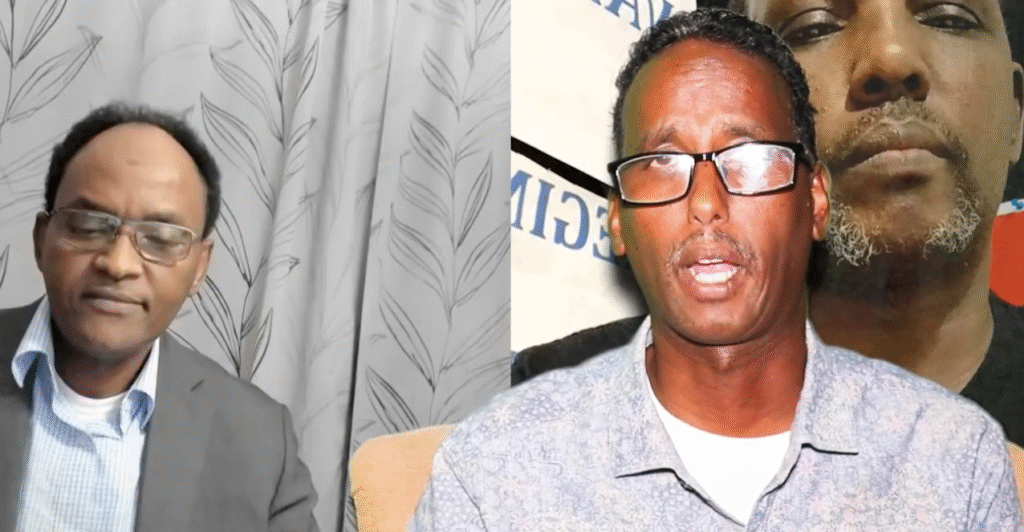A public feud between prominent Somali community leader Jibril Ibrahim and radio journalist Jaamac Farasle is overshadowing the real issues in Edmonton’s municipal election, leaving many Somali voters feeling unguided and disillusioned.
It began with an anonymous report aired on CJSR’s Madasha Furan, hosted by journalist Jaamac Farasle. In that broadcast, Farasle did not name anyone but claimed to have received reports that a Somali community leader in Edmonton had asked one of the mayoral candidates to sign a written promise in exchange for helping secure “the Somali community vote.”
When the program aired, Jibril Ibrahim, President of the Somali Cultural Society of Edmonton, came forward publicly on social media, stating that he was the person being referred to. Ibrahim defended himself, saying the meeting was legitimate and focused solely on community issues.
Following that, Farasle went on YouTube and confirmed that Ibrahim was indeed the figure he had referenced. He explained that he had intentionally avoided naming him in the first broadcast because, at the time, he had not yet seen the letter Ibrahim allegedly sent to the mayoral candidate requesting a signed commitment.
At the heart of the matter lies an unanswered question: was Ibrahim’s meeting an act of advocacy for community interests, or an attempt to gain personal leverage?
In his online statement, Ibrahim acknowledged meeting mayoral candidates, including Tim Cartmell, but insisted that the discussion focused solely on community needs. However, his defence soon shifted from political to personal. Ibrahim attacked Farasle’s credibility, calling him “illiterate” and questioning his work history with Voice of America. The exchange, which initially centred on ethics, quickly devolved into a war of words.
Farasle retaliated on YouTube, saying it was clear that Ibrahim was lying about what he had asked the mayoral candidate. He expressed disappointment and sadness that Ibrahim had publicly insulted him, calling him illiterate.
Edmonton’s Somali community deserves better. It is unfortunate that this online war between the journalist and the community leader comes at a time when Somali voters need to focus on choosing the right candidate, one who can address real issues and deliver solutions. Real leadership means moving beyond personal battles and focusing on tangible priorities such as housing, employment, civic inclusion, and youth empowerment. This feud could serve as a turning point, forcing both leaders and voters to demand transparency, accountability, and unity. The true contract the Somali community requires is not a signed paper from a candidate, but a public commitment to honesty and unity from its own leaders.
